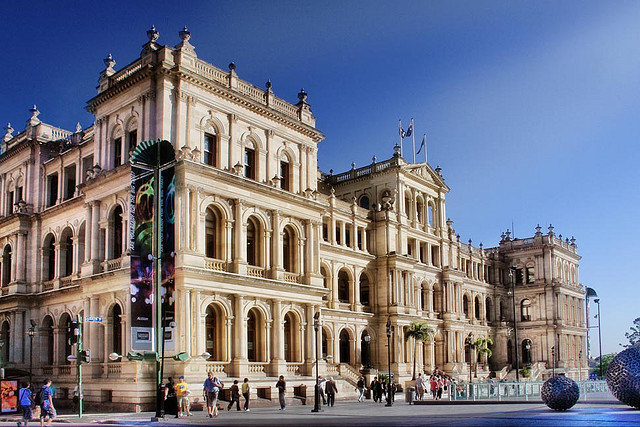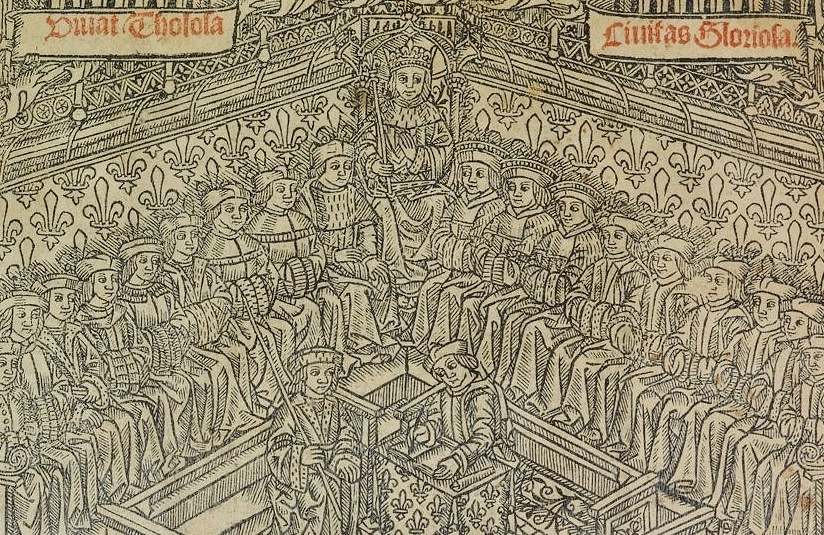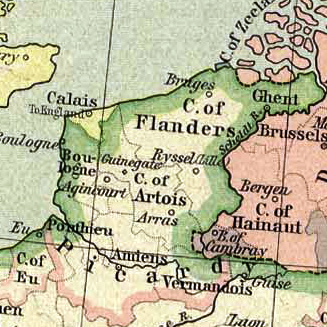|
Charles Alexandre De Calonne
Charles Alexandre de Calonne (20 January 173430 October 1802), titled Count of Hannonville in 1759, was a French statesman, best known for his involvement in the French Revolution. Realizing that the Parlement de Paris would never agree to reform, Calonne handpicked an Assembly of Notables in 1787 to approve new taxes. When they refused, Calonne's reputation plummeted and he was forced to leave the country. Origins and rise to prominence Born in Douai of an upper-class family, he entered the legal profession and became a lawyer to the general council of Artois, procureur to the ''parlement'' of Douai, ''Master of Requests (France)'', intendant of Metz (1768) and of Lille (1774). He seems to have been a man with notable business abilities and an entrepreneurial spirit, while generally unscrupulous in his political actions. In the terrible crisis preceding the French Revolution, when successive ministers tried in vain to replenish the exhausted royal treasury, Calonne was summoned a ... [...More Info...] [...Related Items...] OR: [Wikipedia] [Google] [Baidu] |
Count
Count (feminine: countess) is a historical title of nobility in certain European countries, varying in relative status, generally of middling rank in the hierarchy of nobility. Pine, L. G. ''Titles: How the King Became His Majesty''. New York: Barnes & Noble, 1992. p. 73. . The etymologically related English term "county" denoted the territories associated with the countship. Definition The word ''count'' came into English from the French ''comte'', itself from Latin ''comes''—in its accusative ''comitem''—meaning “companion”, and later “companion of the emperor, delegate of the emperor”. The adjective form of the word is "comital". The British and Irish equivalent is an earl (whose wife is a "countess", for lack of an English term). In the late Roman Empire, the Latin title ''comes'' denoted the high rank of various courtiers and provincial officials, either military or administrative: before Anthemius became emperor in the West in 467, he was a military ''comes ... [...More Info...] [...Related Items...] OR: [Wikipedia] [Google] [Baidu] |
Parlement
A ''parlement'' (), under the French Ancien Régime, was a provincial appellate court of the Kingdom of France. In 1789, France had 13 parlements, the oldest and most important of which was the Parlement of Paris. While both the modern French term ''parlement'' (for the legislature) and the English word ''parliament'' derive from this French term, the Ancien Régime parlements were not legislative bodies and the modern and ancient terminology are not interchangeable. History Parlements were judicial organizations consisting of a dozen or more appellate judges, or about 1,100 judges nationwide. They were the courts of final appeal of the judicial system, and typically wielded power over a wide range of subjects, particularly taxation. Laws and edicts issued by the Crown were not official in their respective jurisdictions until the parlements gave their assent by publishing them. The members of the parlements were aristocrats, called nobles of the robe, who had bought or inh ... [...More Info...] [...Related Items...] OR: [Wikipedia] [Google] [Baidu] |
Habsburg Monarchy
The Habsburg monarchy (german: Habsburgermonarchie, ), also known as the Danubian monarchy (german: Donaumonarchie, ), or Habsburg Empire (german: Habsburgerreich, ), was the collection of empires, kingdoms, duchies, counties and other polities that were ruled by the House of Habsburg, especially the dynasty's Austrian branch. The history of the Habsburg monarchy can be traced back to the election of Rudolf I as King of Germany in 1273 and his acquisition of the Duchy of Austria for the Habsburg in 1282. In 1482, Maximilian I acquired the Netherlands through marriage. Both realms passed to his grandson and successor, Charles V, who also inherited the Spanish throne and its colonial possessions, and thus came to rule the Habsburg empire at its greatest territorial extent. The abdication of Charles V in 1556 led to a division within the dynasty between his son Philip II of Spain and his brother Ferdinand I, who had served as his lieutenant and the elected king of Hungary and ... [...More Info...] [...Related Items...] OR: [Wikipedia] [Google] [Baidu] |
Treasury
A treasury is either *A government department related to finance and taxation, a finance ministry. *A place or location where treasure, such as currency or precious items are kept. These can be state or royal property, church treasure or in private ownership. The head of a treasury is typically known as a treasurer. This position may not necessarily have the final control over the actions of the treasury, particularly if they are not an elected representative. The adjective for a treasury is normally treasurial. The adjective "tresorial" can also be used, but this normally means pertaining to a ''treasurer''. History The earliest found artefacts made of silver and gold are from Lake Varna in Bulgaria dated 4250–4000 BC, the earliest of copper are dated 9000–7000 BC. The term ''treasury'' was first used in Classical times to describe the votive buildings erected to house gifts to the gods, such as the Siphnian Treasury in Delphi or many similar buildings erected in ... [...More Info...] [...Related Items...] OR: [Wikipedia] [Google] [Baidu] |
Lille
Lille ( , ; nl, Rijsel ; pcd, Lile; vls, Rysel) is a city in the northern part of France, in French Flanders. On the river Deûle, near France's border with Belgium, it is the capital of the Hauts-de-France Regions of France, region, the Prefectures in France, prefecture of the Nord (French department), Nord Departments of France, department, and the main city of the Métropole Européenne de Lille, European Metropolis of Lille. The city of Lille proper had a population of 234,475 in 2019 within its small municipal territory of , but together with its French suburbs and exurbs the Lille metropolitan area (French part only), which extends over , had a population of 1,510,079 that same year (Jan. 2019 census), the fourth most populated in France after Paris, Lyon, and Marseille. The city of Lille and 94 suburban French municipalities have formed since 2015 the Métropole Européenne de Lille, European Metropolis of Lille, an Indirect election, indirectly elected Métropole, metr ... [...More Info...] [...Related Items...] OR: [Wikipedia] [Google] [Baidu] |
Metz
Metz ( , , lat, Divodurum Mediomatricorum, then ) is a city in northeast France located at the confluence of the Moselle and the Seille rivers. Metz is the prefecture of the Moselle department and the seat of the parliament of the Grand Est region. Located near the tripoint along the junction of France, Germany and Luxembourg,Says J.M. (2010) La Moselle, une rivière européenne. Eds. Serpenoise. the city forms a central place of the European Greater Region and the SaarLorLux euroregion. Metz has a rich 3,000-year history,Bour R. (2007) Histoire de Metz, nouvelle édition. Eds. Serpenoise. having variously been a Celtic ''oppidum'', an important Gallo-Roman city,Vigneron B. (1986) Metz antique: Divodurum Mediomatricorum. Eds. Maisonneuve. the Merovingian capital of Austrasia,Huguenin A. (2011) Histoire du royaume mérovingien d'Austrasie. Eds. des Paraiges. pp. 134,275 the birthplace of the Carolingian dynasty,Settipani C. (1989) Les ancêtres de Charlemagne. Ed. ... [...More Info...] [...Related Items...] OR: [Wikipedia] [Google] [Baidu] |
Intendant
An intendant (; pt, intendente ; es, intendente ) was, and sometimes still is, a public official, especially in France, Spain, Portugal, and Latin America. The intendancy system was a centralizing administrative system developed in France. In the War of the Spanish Succession of 1701 to 1714 the French royal House of Bourbon secured its hold on the throne of Spain; it extended a French-style intendancy system to Spain and Portugal - and subsequently worldwide through the Spanish Empire and Portuguese Empire. Regions were divided into districts, each administered by an intendant. The title continues in use in Spain and in parts of Spanish America for particular government officials. Development of the system in France Intendants were royal civil servants in France under the Old Regime. A product of the centralization policies of the French crown, intendants were appointed "commissions," and not purchasable hereditary "offices," which thus prevented the abuse of sales of royal ... [...More Info...] [...Related Items...] OR: [Wikipedia] [Google] [Baidu] |
Master Of Requests (France)
A Master of Requests () is a counsel of the French ''Conseil d'État'' (Council of State), a high-level judicial officer of administrative law in France. The office has existed in one form or another since the Middle Ages. The occupational title derives from two words. In jurisprudence and administration, the French term ''maître'' is an honorific for a barrister (a lawyer who acts in proceedings before a court of law), and ''requêtes'' are "appeals" or "petitions". (The legal term ''une requête civile'' is "a petition to an appellate court against a judgement.") Ancien Régime France The Masters of Requests (Counsels of State), more fully ''maîtres des requêtes ordinaires de l'hôtel du Roi'', were originally, during the Middle Ages, judges of a council convened to examine petitions laid by commoners before the Royal Household (''hôtel du roi''). A number of traditions from this time survived until the 18th century, such as the King's accompaniment by two Masters ordinar ... [...More Info...] [...Related Items...] OR: [Wikipedia] [Google] [Baidu] |
Parlement
A ''parlement'' (), under the French Ancien Régime, was a provincial appellate court of the Kingdom of France. In 1789, France had 13 parlements, the oldest and most important of which was the Parlement of Paris. While both the modern French term ''parlement'' (for the legislature) and the English word ''parliament'' derive from this French term, the Ancien Régime parlements were not legislative bodies and the modern and ancient terminology are not interchangeable. History Parlements were judicial organizations consisting of a dozen or more appellate judges, or about 1,100 judges nationwide. They were the courts of final appeal of the judicial system, and typically wielded power over a wide range of subjects, particularly taxation. Laws and edicts issued by the Crown were not official in their respective jurisdictions until the parlements gave their assent by publishing them. The members of the parlements were aristocrats, called nobles of the robe, who had bought or inh ... [...More Info...] [...Related Items...] OR: [Wikipedia] [Google] [Baidu] |
Artois
Artois ( ; ; nl, Artesië; English adjective: ''Artesian'') is a region of northern France. Its territory covers an area of about 4,000 km2 and it has a population of about one million. Its principal cities are Arras (Dutch: ''Atrecht''), Saint-Omer, Lens, and Béthune. It is the eponym for the term '' artesian''. Location Artois occupies the interior of the Pas-de-Calais ''département'',"Artois" in ''The New Encyclopædia Britannica''. Chicago: Encyclopædia Britannica Inc., 15th ed., 1992, Vol. 1, p. 607. the western part of which constitutes the former Boulonnais. Artois roughly corresponds to the arrondissements of Arras, Béthune, Saint Omer, and Lens, and the eastern part of the arrondissement of Montreuil. It occupies the western end of the coalfield which stretches eastward through the neighbouring Nord ''département'' and across central Belgium. History Originally a feudal county itself, Artois was annexed by the county of Flanders. It came to France in ... [...More Info...] [...Related Items...] OR: [Wikipedia] [Google] [Baidu] |
Lawyer
A lawyer is a person who practices law. The role of a lawyer varies greatly across different legal jurisdictions. A lawyer can be classified as an advocate, attorney, barrister, canon lawyer, civil law notary, counsel, counselor, solicitor, legal executive, or public servant — with each role having different functions and privileges. Working as a lawyer generally involves the practical application of abstract legal theories and knowledge to solve specific problems. Some lawyers also work primarily in advancing the interests of the law and legal profession. Terminology Different legal jurisdictions have different requirements in the determination of who is recognized as being a lawyer. As a result, the meaning of the term "lawyer" may vary from place to place. Some jurisdictions have two types of lawyers, barrister and solicitors, while others fuse the two. A barrister (also known as an advocate or counselor in some jurisdictions) is a lawyer who typically specia ... [...More Info...] [...Related Items...] OR: [Wikipedia] [Google] [Baidu] |
.jpg)








